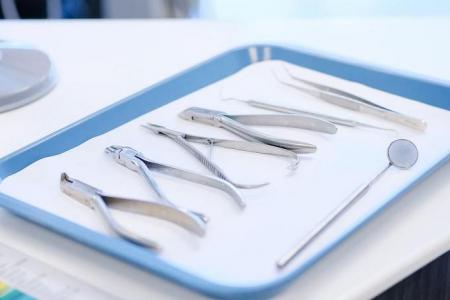Woman's death after wisdom tooth surgery ruled a medical misadventure
After suffering severe pain in her mouth for a few days, Ms Toh Yi Lin visited the National Dental Centre Singapore (NDCS), where it was found that the pain may be due to an impacted wisdom tooth.
After an assessment found that other three wisdom teeth were also impacted, Ms Toh, 24, elected to undergo surgery to remove all four teeth under general anaesthesia. But she died shortly after the operation.
State Coroner Kamala Ponnampalam ruled on Sept 30 that Ms Toh's death on May 8, 2019, was an unfortunate medical misadventure.
The cause of her death was certified to be consistent with malignant hyperthermia, a severe life-threatening reaction to certain anaesthetic agents used during general anaesthesia.
According to court documents, Ms Toh had a history of a high level of fats in the blood that was managed with medication.
Ms Toh, who had no known drug allergy, had undergone two operations in 2011 and 2013 under general anaesthesia and both were uneventful.
On May 8, 2019, she was admitted to NDCS for her dental surgery, and her general condition and vital signs were assessed to be fine.
The anaesthetist, Dr Diana Chan Xin Hui, a consultant at SingHealth, went through an assessment with Ms Toh, who, after consenting to undergo general anaesthesia, was taken to the operating theatre.
After her vital signs were again assessed to be normal, she was anaesthetised by Dr Chan, who then intubated her patient through the nose, a standard procedure for dental surgery.
An NDCS senior consultant performed the surgery, which was uneventful for the first 90 minutes. But before the operation was over, the carbon dioxide concentration in Ms Toh rose mildly.
This became more severe after surgery and her oxygen saturation was also observed to be reduced. Ms Toh was immediately given oxygen ventilation, which temporarily improved her condition.
Although the anaesthetic gas flow was discontinued, Ms Toh did not wake up. She had a fever of 42 deg C, and ice packs were applied and paracetamol given intravenously.
Ms Toh was taken to Singapore General Hospital, and despite attempts to resuscitate her, she died at about 1.30pm.
During the coroner's inquiry, Ms Toh's family raised questions about pre-surgical investigations and screening for the risk of malignant hyperthermia.
Dr Jody Hong, an NDCS dental officer who had reviewed Ms Toh before the operation, said she told Ms Toh and her mother that Ms Toh could choose local or general anaesthesia during surgery.
After discussing the options with her mother, Ms Toh decided to remove all four wisdom teeth under general anaesthesia.
Dr Chan said she had determined that the index of suspicion for Ms Toh's risk of malignant hyperthermia was low, given that she did not develop any side effects during her previous operations and her family did not have a history of severe reaction to anaesthetic agents.
Dr Chan added that malignant hyperthermia is a very rare inherited condition that occurs in one in 50,000 in Western populations and is even rarer in Asians.
While rare, the death rate is high due to the severity of the reaction to anaesthetic agents, she said.
An independent medical expert found the response to the complications arising at the end of the surgery adequate.
He said that usually if a patient or his family members had a previous adverse reaction that suggested malignant hyperthermia, then specialised tests would be recommended.
However, due to the rarity of the disease and the high cost of tests, he said that a patient would not be offered these tests if he or any other immediate family member has no history of adverse reactions to anaesthesia.
The expert, who noted that Ms Toh was asked about her and her immediate family members' reactions to anaesthesia in the past, said Dr Chan had fulfilled the appropriate screening procedure.
Get The New Paper on your phone with the free TNP app. Download from the Apple App Store or Google Play Store now


